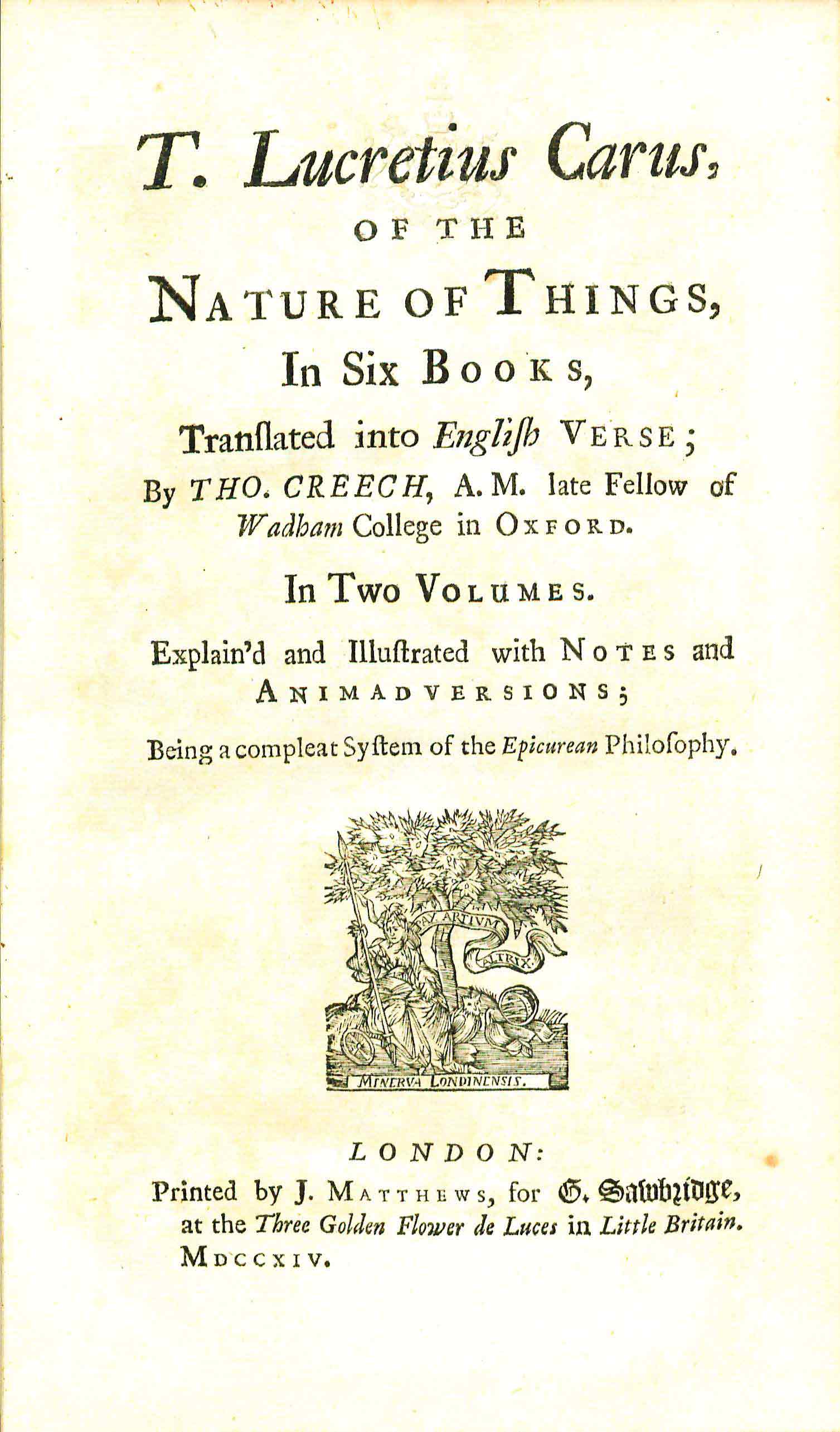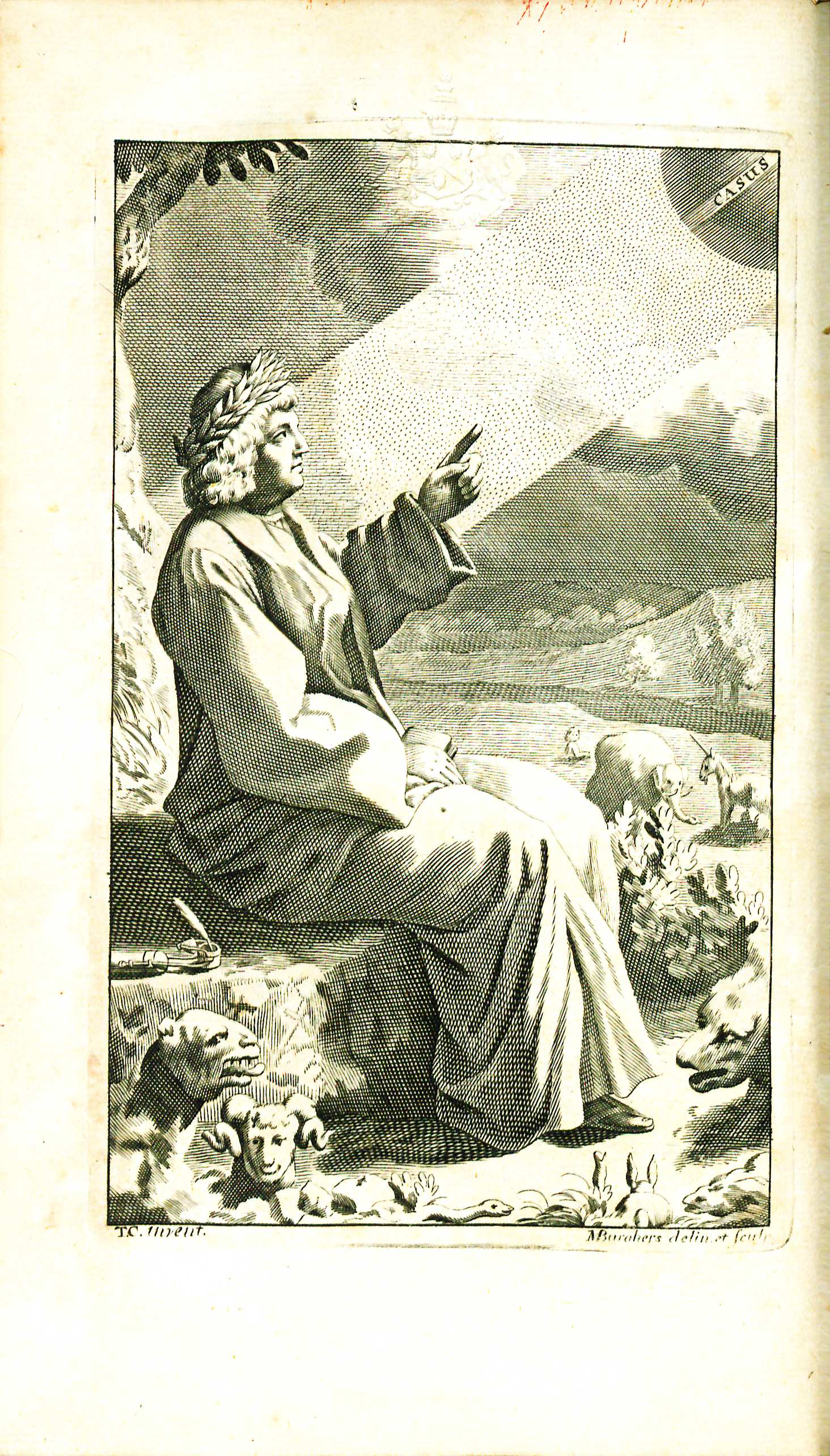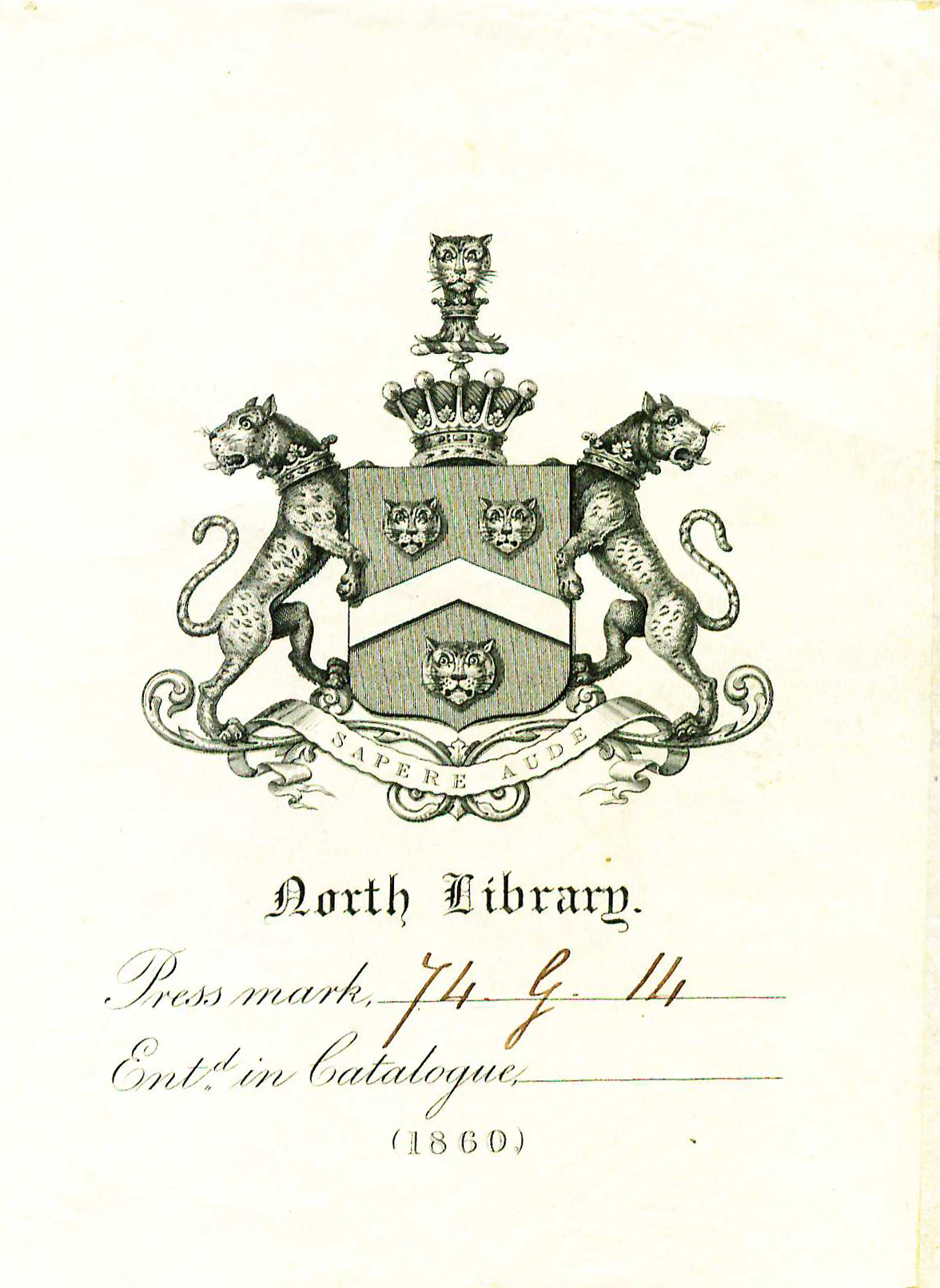Difference between revisions of "Of the Nature of Things"
| Line 30: | Line 30: | ||
<br /> | <br /> | ||
View this book in [https://catalog.swem.wm.edu/law/Record/3817478 William & Mary's online catalog]. | View this book in [https://catalog.swem.wm.edu/law/Record/3817478 William & Mary's online catalog]. | ||
| − | + | ==References== | |
<references/> | <references/> | ||
Revision as of 13:56, 28 February 2014
by Titus Lucretius Carus
| Of the Nature of Things | |
|
Title page from T. Lucretius Carus, Of the Nature of Things, in Six Books, volume one, George Wythe Collection, Wolf Law Library, College of William & Mary. | |
| Author | Titus Lucretius Carus |
| Translator | Thomas Creech |
| Published | London: Printed by J. Matthews for G. Sawbridge |
| Date | 1714 |
| Language | English |
| Volumes | 2 volume set |
| Desc. | 8vo (20 cm.) |
De Rerum Natura, or “On the nature of things,” the only known work of Lucretius, is a poem in six books which is also the best surviving work explaining Epicureanism though the sources are unknown and it is unlikely to include Epicurus’s own work.[5] “The purpose of the poem is to free men from a sense of guilt and the fear of death by demonstrating that fear of the intervention of gods in this world and of punishment of the soul after death are groundless: the world and everything in it are material and governed by the mechanical laws of nature, and the soul is mortal and perishes with the body.”[6] Lucretius wrote with a clear and organizational purpose as even “[the] division of the text corresponds to the Epicurean stress on the intelligibility of phenomena: everything has a systematic explanation, the world can be analysed and understood.”[7] Each book has a prologue and a conclusion, with a greater prologue in Book 1 which “opens with a famous invocation of Venus, goddess of creative life, to grant to the poet inspiration and to Rome peace.”[8] Book 6 was intended as the final book, demonstrated by the explicit statement to that end in the prologue, though it was likely incomplete at Lucretius’s death and therefore published as it was.[9]
Evidence for Inclusion in Wythe's Library
Wythe definitely owned this title—a copy of the 1714 edition at the John D. Rockefeller, Jr. Library in Colonial Williamsburg contains the inscription "Of Doctor James Blair's executor bought by G. Wythe" on the title page of volume one (the doctor's name is stamped). Both volumes also have "T. J. Randolph" inscribed on the front board. Thomas Jefferson listed it in his inventory of Wythe's Library as Lucretius by Creech. 2.v. 8vo. and gave it to his grandson, Thomas Jefferson Randolph. Three of the Wythe Collection sources (Dean's Memo[10], Brown's Bibliography[11] and George Wythe's Library[12] on LibraryThing) include the 1714 edition of Of the Nature of Things. The Wolf Law Library purchased a copy of the same edition.
Description of the Wolf Law Library's copy
Bound in contemporary sprinkled calf with gilt spines and label (on volume one only). Both volumes include the bookplate of the Earls of Macclesfield, North Library on the front pastedown and a matching embossed stamp on the frontispieces, title pages, and first pages of each preface.
View this book in William & Mary's online catalog.
References
- ↑ "Lucrē'tius” in The Oxford Companion to Classical Literature, ed. by M.C. Howatson (Oxford: Oxford University Press, 2011).
- ↑ "Epicū'rus” in The Oxford Companion to Classical Literature, ed. by M.C. Howatson (Oxford: Oxford University Press, 2011).
- ↑ Ibid.
- ↑ "Lucrē'tius” in The Oxford Companion to Classical Literature.
- ↑ Ibid.
- ↑ Ibid.
- ↑ "Lucrētius" in Oxford Dictionary of the Classical World, ed. by John Roberts (Oxford: Oxford University Press, 2007).
- ↑ "Lucrē'tius” in The Oxford Companion to Classical Literature.
- ↑ Ibid.
- ↑ Memorandum from Barbara C. Dean, Colonial Williamsburg Found., to Mrs. Stiverson, Colonial Williamsburg Found. (June 16, 1975), 4 (on file at Wolf Law Library, College of William & Mary).
- ↑ Bennie Brown, "The Library of George Wythe of Williamsburg and Richmond," (unpublished manuscript, May, 2012) Microsoft Word file. Earlier edition available at: https://digitalarchive.wm.edu/handle/10288/13433
- ↑ LibraryThing, s. v. "Member: George Wythe" accessed on October 11, 2013,


